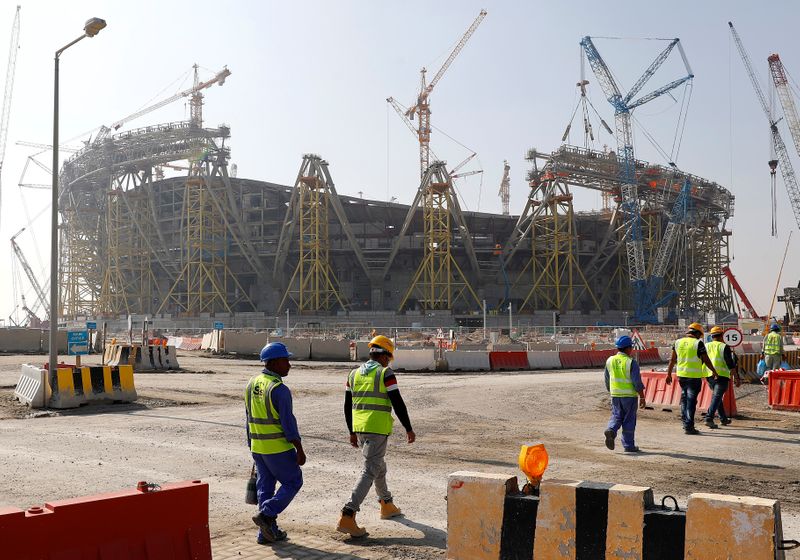
DUBAI: Qatar announced yesterday changes to its labor laws, raising its minimum wage by 25 percent to 1,000 riyals ($275) a month and scrapping a requirement for employees to get the permission of their employers to change jobs. It is the latest in a series of labor reforms by the 2022 FIFA World Cup host which in the lead up to the tournament has faced accusations that migrant workers are exploited.
The new minimum wage is non-discriminatory and applies to all workers, the labor ministry said in a statement. The new rules require all workers, including domestic staff, be paid at least 1,000 riyals for a month of full-time work. Companies must also provide workers with accommodation and food or an additional combined monthly stipend of 800 riyals, it said. Qatar also said yesterday that penalties for non-payment of wages had been increased.
The United Nations' labor agency welcomed the changes, calling them a "historic move". The International Labor Organization (ILO) said Qatar was to become the first country in the region to adopt a non-discriminatory minimum wage. "Qatar has delivered on a commitment. One that will give workers more freedom and protection, and employers more choice," said Guy Ryder, the ILO director general.
It also said, in addition to other reforms, removing the need for employees to obtain a No Objection Certificate from their employers to change jobs "effectively dismantles" the "kafala" system. The "kafala" sponsorship system is common in Gulf states, where visas for foreign workers are tied to their employer. Qatar last December scrapped restrictions on leaving the country for hundreds of thousands of domestic workers left out of earlier reforms. The changes announced yesterday will come into effect in six months, the labor ministry said.
Qatar has made a series of reforms to its employment regulations since being selected to host the 2022 World Cup which has required a vast program of construction dependent on foreign workers. "Qatar is the first country in the Middle East to have a minimum wage for all workers without discrimination, whether domestic workers or private sector workers," Qatar's assistant under-secretary for labor affairs, Mohammed Hassan Al-Obaidly, told AFP.
More than two million foreigners work in Qatar, many employed directly or indirectly on vast infrastructure projects for the World Cup. "The World Cup is a milestone in Qatar's long-term development strategy. In the interests of our country, we will continue to introduce new reforms that benefit the economy, businesses and the people who come to work here," Obaidly said. - Agencies

